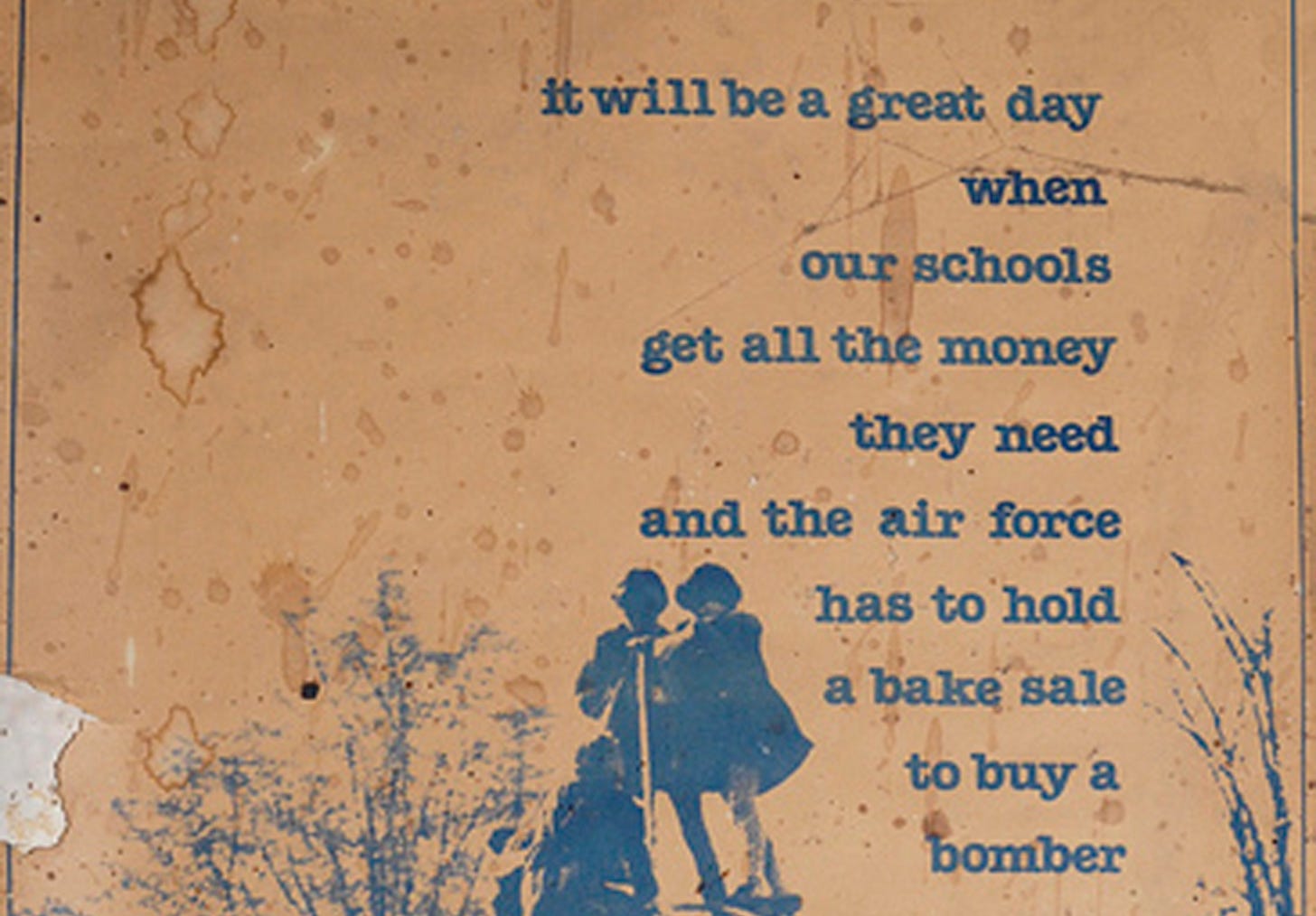We Could Have Enough Teachers If We Paid People Enough To Be Teachers
Subtle difference!
We have a fairly severe teacher shortage in the United States, and it’s not getting any better. Is it because people just plain forgot to become teachers? Is it because we, as a people, just really started hating children? Have large numbers of our nation’s teachers been kidnapped without anyone noticing? Or is there, perhaps another reason?
Last week, the US Senate Committee on Health, Education, Labor and Pensions (HELP) held a hearing about the problems facing US teachers, and while there are certainly a variety of them and a lot of reasons why teachers are suffering from burnout, there is one, big, massive, glaring problem that makes all of those other problems a lot less tolerable.
It is, in fact, about the money.
“The No. 1 solution to addressing the issues we face must be increasing teachers’ salaries,” said [John] Arthur, who teaches at Meadowlark Elementary School in Salt Lake City, Utah.
Gemayel Keyes, a teacher at Gilbert Spruance Elementary School in Philadelphia, told the committee that even as an educator, he still has an additional part-time job.
The special education teacher spent most of his career in education as a paraprofessional. At the time he moved into that role, the starting annual salary was $16,000 and the maximum was $30,000.
“It’s still pretty much the same,” he said.
That’s fairly ridiculous, no? Wouldn’t the logical thing be to simply say, “Hey, not enough people are signing up to do this job, maybe we need to pay more and sweeten the deal in some other ways as well?” I would assume so!
HELP chairman Bernie Sanders (I-Vermont) also thinks this is a good idea, which is why he proposed a law last year that would have guaranteed all teachers a salary of at least $60,000 a year — so they could afford things like “living in the same community where they teach,” transportation to their jobs, and, of course, the $500 to $750 a year the average teacher spends on supplemental supplies for their classrooms.
Now, again, one would think that if teachers are saying “the biggest issue is that we are not getting paid enough,” everyone would agree that the thing that would make the most sense would be to pass that bill or something similar and pay them more. Sure, there are other issues — mass shooters, unvaccinated children, creepy parents who want to ban books and see teachers arrested for mentioning the existence of LGBTQ+ people — but the obvious first thing to try is upping the money.
Of course, not everyone agrees. Republicans in attendance were quite clear that they’d prefer it be something else, somehow.
Sen. Bill Cassidy, ranking member of the committee, dubbed Democrats’ solution of creating a federal minimum salary for teachers as a “laudable goal.”
But he noted that “the federal government dictating how states spend their money does not address the root cause of why teachers are struggling to teach in the classroom.”
“More mandates and funding cannot be the only answer we come up with. We must examine broken policies that got us here and find solutions to improve,” the Louisiana Republican said.
It’s the first answer, though. Because if there were specific “broken policies” or “root causes,” surely he would be able to name them.
Nicole Neily, president and founder of the “parental rights” group Parents Defending Education, explained that the real problem was diversity, equity, and inclusion officers, which just makes all kinds of sense. Meanwhile I’m going to blame climate change on people who put cottage cheese in their lasagna and, no, I will not be taking any questions at this time. Let’s just all blame bad stuff on entirely unrelated things we personally dislike!
The sad thing is that the main image up there is entirely correct. If we needed money to help fund an invasion of some oil-rich country, we’d find the money, somewhere. We had $1.5 trillion to spend on a few F-35 Joint Strike Fighters that only work half the time. We can rally for that, but we just can’t get it together to pay our teachers enough to live.
The fact is, like so many other problems in our nation, our teacher shortage is a choice. We could tax rich people more, we could allocate resources differently and dedicate more to education and teacher salaries. We have options, we choose not to use them.
PREVIOUSLY:








Because it needs to be said again:
"Every gun that is made, every warship launched, every rocket fired signifies, in the final sense, a theft from those who hunger and are not fed, those who are cold and are not clothed.
This world in arms is not spending money alone. It is spending the sweat of its laborers, the genius of its scientists, the hopes of its children. The cost of one modern heavy bomber is this: a modern brick school in more than 30 cities. It is two electric power plants, each serving a town of 60,000 population. It is two fine, fully equipped hospitals. It is some fifty miles of concrete pavement. We pay for a single fighter plane with a half million bushels of wheat. We pay for a single destroyer with new homes that could have housed more than 8,000 people." -- the late communist President Eisenhower
We need to get past talking about the abysmal state of teacher pay and focus the debate on _why_ Republicans, both nationally and locally, are keeping teacher salaries low - their desire to dismantle public schools and turn them over to the private sector to manage with taxpayer funds.
This isn't about "fiscal responsibility" or other right-wing talking point nonsense. This is solely about a Republican war on public education on behalf of donors who stand to make a killing running these schools or supplying garbage textbooks for them.